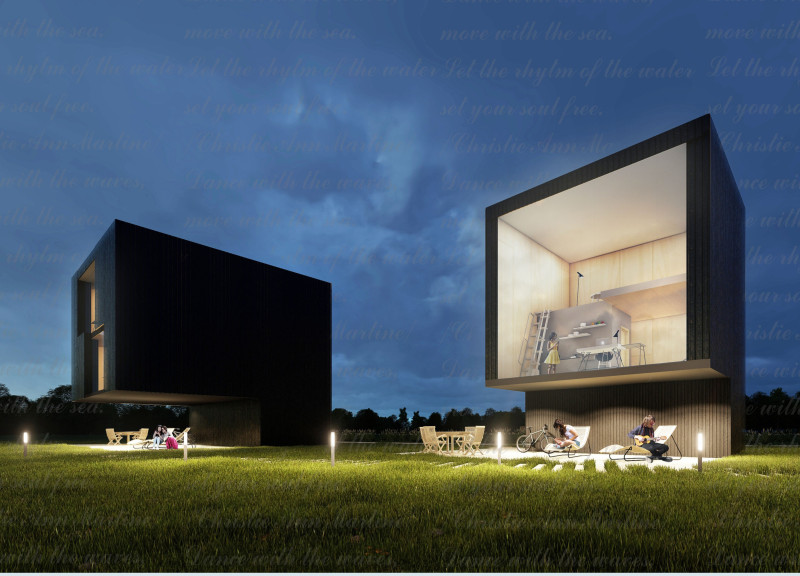5 key facts about this project
Integration with the Environment
One of the notable characteristics of the Pavilosta Poem project is its strong connection to the surrounding landscape. The buildings are arranged to maximize natural light and views, utilizing large windows that create visual links between indoor spaces and the external environment. The project features various hut types, including single, double, and larger accommodations, which allows for adaptability to different user groups. This flexibility promotes a sense of community and enhances social interaction among residents.
Sustainable Design Features
The architectural design incorporates several sustainable elements that contribute to its environmental efficiency. Key features include:
- High-performance thermal insulation that maintains comfortable indoor climates while minimizing energy loss.
- A controlled ventilation system that not only provides fresh air but also recovers heat, adhering to passive house standards.
- The use of renewable energy sources, such as solar panels, integrated into the design to ensure energy self-sufficiency.
Unique Aspects of the Architecture
What differentiates the Pavilosta Poem project from conventional developments is its dual focus on both functionality and community engagement. The choice of materials, predominantly sustainable timber for cladding, reflects an awareness of ecological impact. Additionally, the architectural layout encourages interaction through shared spaces and communal trails that weave through the site. This thoughtful design fosters connections among residents, enhancing the overall quality of life within the community.
For a comprehensive understanding of the architectural intent and execution, explore the detailed architectural plans, architectural sections, and architectural designs. Each aspect of the Pavilosta Poem project contributes to a cohesive vision of sustainable living within a community setting. This project exemplifies key architectural ideas that inform modern living while respecting ecological integrity.


























